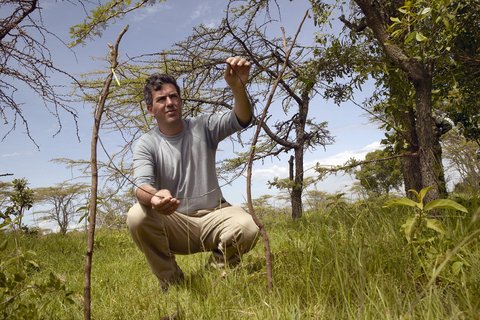Trapping has often been called the oldest pursuit of man predating hunting and agriculture. And although methods got more refined through the ages, the snare has maintained it’s usefulness and simplicity as one of the best survival traps of all time.
First off, know that using any primitive survival trap is illegal unless your life depends on it. A simple snare setup conserves energy (vital in survival) and many can be set in the time it would take to build a more elaborate trap. This increases your odds of getting food while allowing you to focus on other aspects of survival.
RELATED: How to Create a Spring Pole Snare Trap
Making the actual snare is simple. First, you want to find the thinnest, strongest material you can. Thin wire is great but most folks don’t think about carrying it. Paracord is a great choice and chances are that you have some in your pack or even on your gear. The inner strands are very strong and thin. You can also use fishing line, shoe strings or even dental floss.
All you have to do is tie an overhand knot on one end and make an adjustable loop and you’re done with the snare. Think of how many you could make compared to trying to carve a figure four deadfall or other trigger activated traps. Snares just make sense and are quite effective as one of the best survival traps.
RELATED: Watch a Paiute Deadfall in Action
The most important thing for any survival trap is location. It shouldn’t take long to notice small game runs and holes in the ground. Common sense (like the size of the hole) dictates how big to make your loop. There are a lot of critters that live in the ground and their hole is about the size of their head. Also, look for small game trails and set your snare at the narrowest point.
Once you’ve determined your location(s), you want to rig the loop so it stays open and upright. This can easily be achieved by using small sticks stuck in the ground and hanging the loop on them. You also need an anchor point which can be a nearby tree, bush or a stake driven in the ground. You can use brush to camouflage your snare and you can also use other materials to direct the game through it. Small game will usually try to stay concealed so make it cozy.
RELATED: How to Catch Fish in a Survival Situation
The great thing about using a simple snare is the ease of setup and the ability to quickly set a bunch of them which ups your odds of getting a meal. Considering that most small game is more active at night, you have pretty good odds of waking up to breakfast. Snares are easy to make, easy to move and don’t require the energy (or maintenance) of other fancy traps, especially if you’re not a skilled trap maker.
Chances are you won’t ever need to make one but taking the time to practice making a snare trap in your backyard or on your next outing, could actually save your life in a survival situation. Knowledge and hands on experience of primitive skills such as this are incredibly valuable to anyone who ventures into the wild. The more you know the better because you never know.
© Americanspirit | Dreamstime.com – Wayne Pacelle CEO Of Humane Society Of United States Checking Snare Trap For Animals In Tsavo National Park, Kenya, Africa Photo








